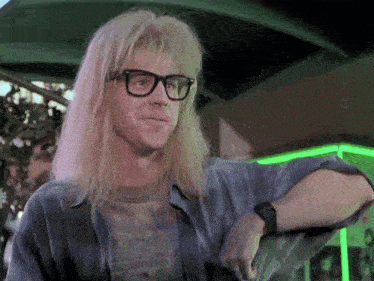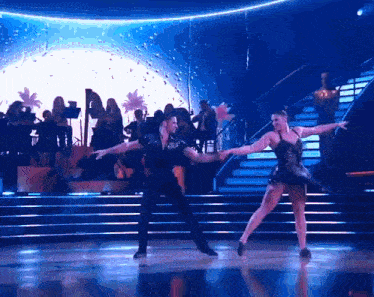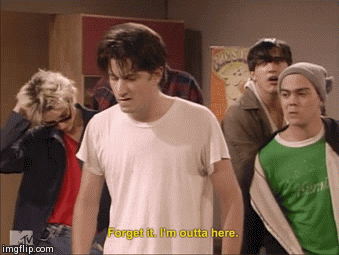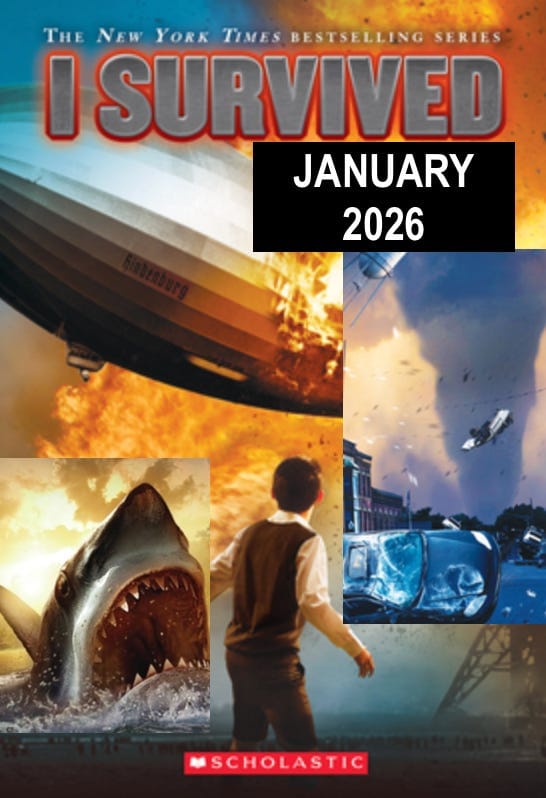Not right now: fascism
If you have time to do a li'l resisting, what does it look like?

Hi! I’m scheduling this issue to go out on spring break. I hope you enjoy it/find it useful, but if you have any questions or need feedback from me directly, I’ll be in touch on March 31 or later.

There isn’t a ton of time in the day to actually read the news and figure something out to do in response to it — in addition to actually doing your job, taking care of your kids and yourself, doing laundry and figuring out dinner. That’s the premise of ‘s and my podcast Not Right Now. Below, I’m sharing an edited version of an essay he ran on his newsletter Important, Not Important, which includes some action items you can take if it inspires you to take action. I know some of you have wondered who this dude is I’ve been podcasting with, and this is an example of the type of stuff he covers.
But first, if you have been able to take action to fight back against rights-curtailing in the states — or the world — please share what you’ve been up to in case other Witches are looking for things to do. I can share that I chipped into my friend Anna’s Chicago Abortion Fund’s fundraiser, and at the end of this month, I’ll be at Chicago’s Rally for Trans Visibility. It’s better to get out and stay busy than stay home and read the news too much, at least for me. What are you up to?
When the wheels on the school bus stop going round and round
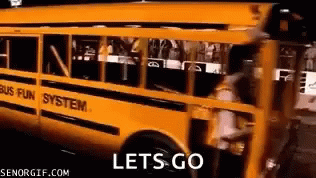
Originally published February 11, 2024
If you are driving in America (something I do not recommend) and a yellow school bus stops on your side of the road — or even the other side of the road — the next thing it will do is to extend its adorable little flashing stop sign.
Moments later, 400 flashing red beacons light the bus up like a Clark Griswold fever dream, all to make explicitly clear that you have to stop your car, right now.
And not like, a gentle Tokyo Drift closer and closer until the sign retracts, like you do every day through right-on red.
You have to come to a full stop, like, pretty far away. There is no room for fucking around.
If you don’t stop at all, well, there are consequences. In addition to the financial and legal penalties, I have to imagine the societal implications of RUNNING THROUGH A SCHOOL BUS STOP SIGN are far worse.
I know my own reaction would be, “What the FUCK are you doing?” Instant rage. Aghast.
Combine all of these conditions, and it seems we have pretty firm agreement:
In America, you cannot just drive through a school bus’s stop sign and — potentially — hurt at least one child.
Despite years of doing this work, I still like to believe there’s some generally agreed upon lines we all won’t cross (2025 editor’s note: hoooo boy).
This bushy-tailed naivety is informed (skewed?) by personal experience.
When I was very young, my own school bus meandered every morning through a leafy, quiet college town neighborhood.
Well, one morning, shit went sideways. Real sideways.
The bus stopped.
The stop sign and all the lights came out (these existed as far back as 1988, or as my children refer to it, “the late 1900’s”).
I watched from the bus window as my curly-haired friend Grace bopped into her idyllic little street.
But on this day, as I watched in horror, Grace was nearly crushed when an asshole in a Ford Escort came screaming down her side of the street, fuck your stop signs.
To say the car missed her by inches would be an exaggeration.
Our bus driver wrenched open her window, told (traumatized) Grace to go right back inside her house, told the rest of us to HOLD ON, and then ABSOLUTELY FUCKING FLOORED IT to chase down the Ford Escort.
This 2 Fast 2 Furious experience felt OFF THE CHAIN and also like PURE TERROR, as I — and thirty other elementary school friends careened around the bus, grasping for dear life to our cracked leather seats.
The whole thing ended two minutes later when our bus driver launched our bus, like a Tomahawk missile right into the perpetrator’s FRONT YARD.
She opened the door, stomped down the stairs, and laid into this CRIMINAL with a righteous fervor. It was incredible, and I think it speaks to the very obvious and universally respected rule that you do not fucking drive through a school bus stop sign!
It is easy to assume this rule and rules like it are obvious and universally respected.
Before we ruin that idea, let’s talk about another obvious example: air safety.
To set the tone: I don’t love turbulence. I also understand more about probabilities than I used to or would like to, and so I am aware I’m significantly more likely to die from some sort of road traffic accident than I am on an airplane.
Living with this nuanced, informed perspective — really fully knowing what a horror show American streets are and how relatively safe air travel is — I have decided that my remaining fear is probably wrapped up in a sort of, “Ok sure, but if this plane goes down, nobody’s just twisting an ankle. I’m bread crumbs” fatalism. This, as opposed to, say, a fender bender. But on the other hand, that’s not really true, either. People survive plane accidents all the time.
Sure, yes, doors have been consciously uncoupling from their planes recently, and other planes have been running into each other in places where they would otherwise land safely, but there’s a reason for that, and it’s called human nature.
You could describe it as resting on our laurels or whatever, but vis a vis air travel and some other things, we have recently decided, “These things are so safe, we can stop being so safe with them.” Kind of how Republicans stopped vaccinating their kids from measles and polio (again, 2025 editor’s note: do you see why we’re re-running this essay?).
Again, The argument is, “If this thing is so safe, why do I have to continue doing the thing that has made it so safe?”
Zeynep Tufekci wrote in The New York Times about why planes don’t usually run into each other:
“A National Transportation Safety Board investigation report reads like a how-to book for pulling off miracles and achieving seemingly incredible levels of safety. These reports renew one’s faith in what humanity can achieve if we apply our brainpower and resources to it.
But they also remind us that, much like liberty, these exceptional levels of commercial airline safety require eternal vigilance against the usual foes: greed, negligence, failure to adapt, complacency, revolving doors at regulatory agencies and so on.”
Thanks to those “tradeoffs”, comparing the safety regulations for air travel versus, say, cars, supplements, or guns is really an apples and oranges scenario.
Which is why it’s frustrating and really a shame that the one sector we said “No fuckups allowed” about — the most complicated of all of them — is now sliding closer to “Ok, some fuckups”.
We once said, “Hold on just a second, Wright Brothers. If we are going to let pilots just fling these 100 ton airliners all over the sky, there should obviously be very strict rules about who can fly what, and after how much training, and where they can fly, and how many of them can takeoff, fly, and land in one place at one time, and how often and how rigorously the airplanes themselves should be inspected. Shit, we should even make rules about how tall buildings can be without flash lights on top. There is no rule small enough to make sure everyone is safe.”
Air travel is/was so good and so reliable — like how lights turn on when you hit a switch or water flows from your tap — that it has almost become invisible. It is part of the long-accepted essence of everyday life.
But as Zeynep also wrote, “Sometimes, it’s good to make visible the many invisible people who keep us safe.”
Except…instead of doing that, and in the name of good business and shareholder returns, we have decided planes are “safe enough.”
You may be wondering what my credentials are to judge such a thing.
I am not my mother-in-law, who is an expert in risk and making peas with butter, but I am a liberal arts major who couldn’t really figure out another realistic way to use my degree besides this critically acclaimed mile-wide and inch-deep understanding of the human condition and how it drives the macro forces and systems underpinning global economies into slowing down the jet stream.
When it comes to kids, at least, and/or the fundamental human necessities like air, water, food, and shelter, I feel like an agreeable threshold for “safe enough” is somewhat like Justice Potter Stewart very clearly defining hard-core pornography as “I’ll know it when I see it.”
Whatever your credentials, if we are arguing about minutiae when it comes to kids, air, water, food, and shelter, you are an asshole, and we have lost the plot.
But the thing about human nature is that our increasingly complicated incentives make these basic standards increasingly harder to define, much less agree to.
Facebook’s moderation circus early last year that two billion global users can, yes, safely continue to share a lightly edited video implying the president of the United States is a child predator. Did they consider all of the possible secondary effects of this decision?
This isn’t to say Facebook/Meta doesn’t do a simply enormous amount of content moderation. If they didn’t (and they do), the platform would have successfully facilitated way, way more genocides than simply the one in Myanmar.
Again, tradeoffs. We/they have decided that internet cannot simply/only be a safe place.
I believe we can do better, though. I believe we can agree on some truly basic shit. We have made progress in a variety of other areas, overcoming previous tradeoffs for the better good.
You cannot simply light up a cigarette wherever you want any more because it turns out that this is not only very bad for you, but it’s also bad for other people.
The work to get to this point was endless, and there are even other examples!
Consider how surgeons have to actually wash their hands now before digging around inside your meat bag or how food workers have to also wash their hands as they painstakingly assemble your carnitas bowl.
In fact, both of those professionals also have to wear gloves, because we decided it’s actually not enough to just wash your hands! Amazing. The things we will do for safety.
These are all examples of where we have used new knowledge or updated our priors to protect more people because we could and should. We didn’t use to do these things, like how we used to let people and animals poop upstream of other people’s drinking water or how we let Kodak dump a gazillion gallons of chemicals into the waters around Rochester, New York, and then, voila, a generation of CNY women had trouble conceiving.
But we gained knowledge, often the hard way, and made it better, if not equitably so. The stakes were too high: if those people don’t wash their hands or wear gloves, either could infect you with whatever they’re carrying around or have recently picked up/been quietly incubating, much like your kids.
In the Chipotle version, the foodworker could infect many people, because when people are sick but still have to go to work around other people and their particular job is make food for even more people, that’s the math. And it’s actually the same math for health workers, or really any workers, even if they are not making your child a plain quesadilla, again.
It is obvious that sick people should not have to come to work, if at the very least so they don’t infect their co-workers, reducing workplace productivity and, eventually, the potential for those sweet, sweet shareholder dividends.
But despite those incentives, that’s not actually the rule here in America. And it’s not the rule because of those pesky “tradeoffs” making even the most clear incentives kind of hard to cleanly argue for or against.
But hold on, there are no tradeoffs for the school bus example, you say. We can argue for tradeoffs for almost everything except this precious, obvious thing. So you are two minutes later to wherever you are going in exchange for a child’s life? That’s just not a realistic tradeoff in any imagination! What are we even doing here having this discussion?
And yet.
There are some people — some very few but real people — who might argue for reducing these penalties or doing away with them altogether.
Now you might scoff at or even disagree with my claim, and I would briefly provide significantly more context:
“In the National Association of State Directors of Pupil Transportation Services’ 2019 Stop Arm survey, 130,963 school bus drivers reported that 95,319 vehicles passed their buses illegally on a single day.
Throughout a 180-day school year, these sample results point to more than 17 million violations among America’s driving public.”
We have decided to continue to contest the definitions of “clean water” and “clean air,” who can say when they are clean, and what things we could put into your water or air that might then go into your body or your Goldendoodle’s body or, most likely, a Black person’s body, because of tradeoffs.
One of our tradeoffs is so well known that we have affectionally renamed a particularly and intentionally dicey region of the Gulf coast, “Cancer Alley”.
We inspired a bazillion helicopter parents, but US kids (to say nothing about the world’s kids) are addicted to their phones because we refuse to regulate big tech. Meanwhile, foster care is broken, and childcare is inaccessible and unaffordable.
In the US, kids are more likely to go hungry or live in poverty than kids in other wealthy countries because we have decided that is ok, or at the very least, been unable to come to an agreement on what is not ok.
How are we supposed to navigate this energy transition, AI, and pandemics if we cannot agree on the most basic, fundamental shit?
We argue about tradeoffs or gently suggest expanding the scope of our moral concern to include other people’s air, water, food, shelter, and health instead of simply saying some things — like the lives of children — are simply, emphatically, non-negotiable.
So you may ask: What can I do?
- Donate to DonorsChoose so that teachers who are already criminally underpaid don’t have to pay for basic classroom supplies out of pocket.
- Volunteer with a grassroots environmental justice organization in your state, working to create healthier, more sustainable, safer communities.
- 🌎️ Get educated about what sustainable public transit looks like around the world so you can apply those policies in your community.
- Be heard about reversing the funding freeze on foreign aid. Human lives and dignity are on the line.
If you’d like more ways to access ways to unfuck this planet, check out Important, Not Important’s app.
End credits
Thanks for reading Evil Witches, a newsletter for people who happen to be mothers. Here’s what we’re all about. The Evil Witches archives live here.
If you are not a paid subscriber, consider joining us!
And if you are a paid subscriber, thank you so much for supporting this work. Keep an eye out: the call for classified ads is coming soon.
One witchy thing
From an email I got from a colleague when we were exchanging complaints about how rough this winter/spring has been for sick kids:

